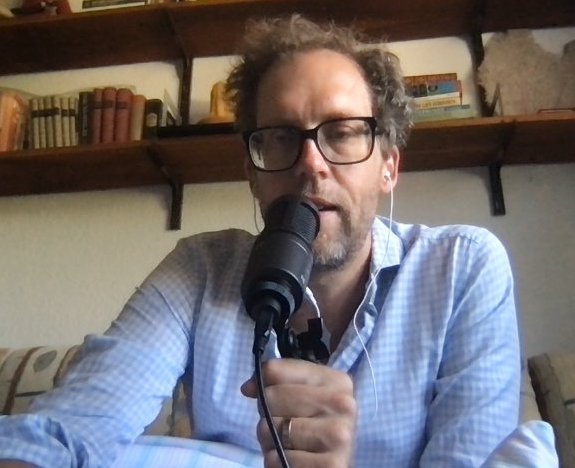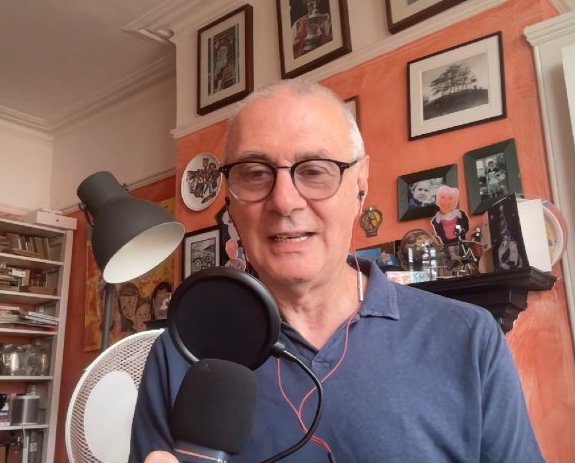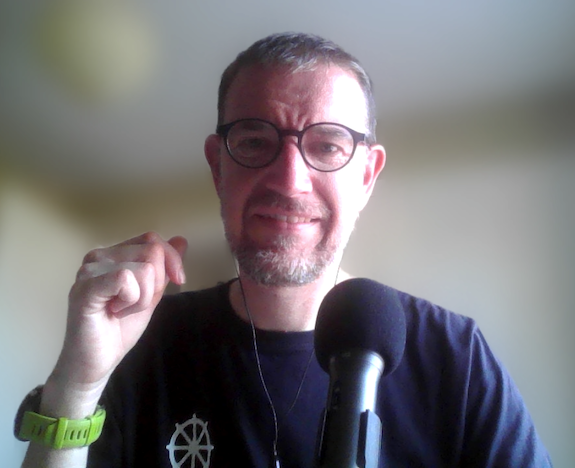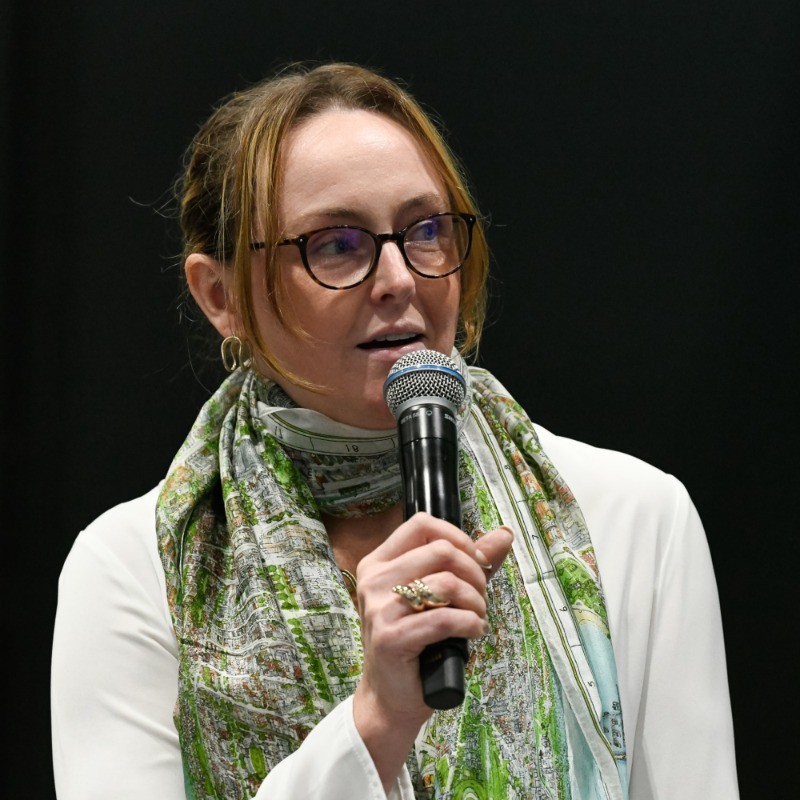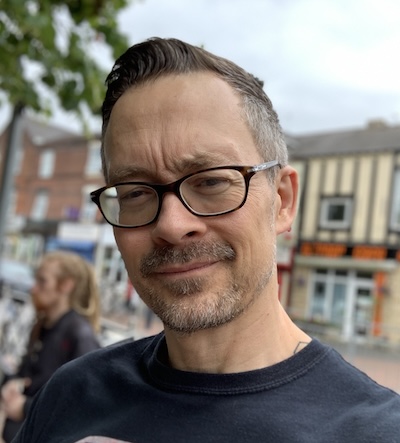Subscribe
In this episode I introduce co-host and longtime geomobster
Steven Feldman.
Steven has been a supporter of Geomob as an attendee, speaker, and sponsor, and has many years of experience in the geo industry in many different roles. We explore his background and talk about some trends we'll be covering in the coming episodes.
Steven is behind Mappery.org, and following his progress with the project will be one of the ongoing topics we'll cover on the podcast. Find out more about Steven and his projects on his website.
About the podcast
On the Geomob podcast every week we discuss themes from the geo industry, interview Geomob speakers, and provide regular updates about our own projects.
Popular podcast topics:
The Geomob podcast is hosted by:
Autogenerated Transcript:
Ed 00:01 Welcome to the geomob podcast where we discussed you innovation in any and all forms. Be it for fun or profit. Hi everyone. Welcome back. This is episode two of the geomap podcast. This is our first real episode after our brief teaser episode that I put out today. I'm going to be talking with Steven Feldman who is a very long time geomobster based in London. He has spoken at geomob. He's also been a sponsor of geomob for many years and he and I will be the two a cohost of this podcast, so we'll be talking about many different things, different themes of the geo industry, interviewing people from that speak at geo mobs and so today I thought I'd kick things off by interviewing Steven and you can tell us a bit about his background. Steven has many, many different projects and has been very active in the geo space for a long time.
Ed 00:49 His current project or one of his current projects is mapper.org which is a noncommercial project that's just about the love of maps and that kind of crowdsourcing interesting maps and we'll get into that a bit more in the coming weeks and months as the podcast continues. My own project is something called the open cage geocoder. We provide a geocoding API based on open data, so if you need any geocoding please give us a try and we'll also be be tracking that in the coming weeks and months. And so that will be kind of the one of the ongoing themes of the podcast is how our different projects are doing and hopefully other people can learn from, from the ups and downs of our progress. But let's dive into our discussion today. Stephen, welcome. We've talked for a long time about doing a GMR podcast, so I'm glad we're, the wheels are finally in motion, but you also have a long history in geo, many, many different roles. So take us through your background, what, what, what got you into geo, what have you done?
Steven 01:42 Hi ed. Well, first of all, thanks for inviting me to join you on the podcast. I probably got up pretty nontraditional background for someone who's built a career in geo. I've got no technology skills at all. I graduated with an economics degree and I had my first job in the building materials industry for nearly 20 years. Working my way up the corporate ladder. The first yep. Time that I stumbled into geo was when I was looking for something new to do and a friend asked me to help him out for a few months when he was merging his day to business with an internet startup. That became where on us.com which ultimately, as you remember, got bought by Yahoo within a couple of years of running a division of one of the largest glass manufacturers in the world. I found myself working in a doc in that crazy period just before 2000 when just adding the and the column to your company's name could double the value of your business. If you think we've had some wacky pitches at jeer Mobo over the years, I promise you we're nothing compared to some of the flaky people that we met in those first few years of the.com era.
Ed 02:59 But where on earth and
Steven 03:00 was quite a success, I became Coda coordinates business where on earth was the success. But behind the scenes it was a crazy experience because it was lots of people who had vision. Truthfully, none of us on this.com stuff before. You know, one guy had run a small GIS business and another guy had run a marketing business as CEO. I think he, he'd worked for the people who make trivial pursuit, you know, I mean this was not an internet techie background. You know, we had a few technical people obviously that we had, but in the management, this was not, not the traditional background that you'd have for a.com and yes, it was a success and it was the first global geocoder that was ever produced, you know, at the time was quite an incredible thing for a small company to be doing.
Ed 03:51 It's still quite a difficult thing as a small company. So yeah, my full credit. Yeah.
Steven 03:57 Yeah. And actually there's probably a conversation we can have later on about some of the uh, the early stage of building a global geocoder cause you know, now open cage, your business is sort of standing on the shoulders of all the work that was done many, many years previous. And in fact I would guess some of that code and some of that data has found its way through open data into the open cage geocoder so that's the one for another day. Just to finish the story about my career at the height of where on earth we were burning money at a prodigious rate is a, is a polite way to put it. You know, I mean the expenditure was massive. The revenues were tiny in 2002, the company was struggling. I had the opportunity with some colleagues to buy out. Yeah. The boring doll GIS business was the only significant revenue generating activity that we're on.
Steven 05:02 And I'm in 2002 we bought that business out. It was just at the start of the -inaudible- government boom in the United Kingdom and people were desperate to get web mapping onto there government websites and we were in the right place at the right time and five years later we sold it to MapInfo for quite a lot of money. So um, in a relatively short period built up my first -inaudible- company and geo sold it, made a bit of money and then I got appointed by MapInfo first of all to run their UK operations, merging several businesses together to form what became the whole of MapInfo UK. And subsequently I headed up product management and industry strategy for the AMEA region of MapInfo for a year or two. And then in 2009, MapInfo had their four three organizing since I'd been working for them. And I opted for a generous redundancy package and started my consultancy business and started angel investments. And for the last 10 years I've been advising tech businesses primarily in the geo space, but not only working around strategy and execution. And I've also been in it angel investor making a number of investments. Several of them with you, ed as you know. And probably that's something we can talk about. -inaudible-
Ed 06:38 yeah, that's definitely something we'll go deeper on. That was also the subject of talk you gave at geo mop Linda and I think for a year ago or so, but you've also been a very active kind of on the open source side of things. Tell us a bit about that.
Steven 06:50 Yeah, so, um, when I was at MapInfo I saw two threats to the business, which I, we were talking about at sort of the senior level and the two threats to the business where open data and open source and there was a pattern because they were both highly disruptive. And since I left MapInfo I've been very involved with OSBO. Now I'm a charter member of OSG Neo, which is sort of the, those people who are entrusted with protecting the core ethos of the organization. I chair phosphorG , which is the global conference in Nottingham 2013 and I've served on a number of groups -inaudible- I am a passionate advocate for open source. I can't really see the reason why we would be developing software in a proprietary framework any longer.
Ed 07:45 Well thank you very much
Steven 07:47 more to be achieved through collaboration as opposed to sort of the closed environments of proprietary software. But that's one again for another day I think.
Ed 07:58 Yes. Well I do share that view in in general and uh, as I said, thanks for all your efforts there. As someone who runs a business based on open data and uses a lot of open source software, I just even, I mean I'm excited to have you with us because you have wealth of experience that you have having worn many different hats as you are as advisor, as investor. And I think, I think what's good is that this is also representative what we're trying to do with geomob as an event of getting, we have startups but it's not a startup pitch event. We get hobbyists, you know, we have a lot of people from the OSM community, which of course originally got started in London, but it's not a hack event. We also of course have people from the Israelis and ordinance surveys of this world and larger companies, but it's not formal professional gathering. So it's very broad and diverse and that's kind of what I hope also for the podcast. Anyone who's doing anything interesting. As we say in our geo mob tagline for anything interesting in geo for fun or profit, what are the trends that get you excited these days?
Steven 08:54 That's good question. And to be honest, I worry that I don't really know where the cutting edge stuff is happening anymore. I found my way into geo in a vector rules environment, you know, and I understand vector geography and how all that stuff works and how it can be applied. And I get the tech that you can use to do that. But today, yes, space is so much bigger than just GIS. And vector is only a small part of the picture. And we've got petabytes of remote sense data being created every day. And we have sensors on everything and we walk around with GPS chips in our pockets and we're continuously discovering new applications to this day's room, sort of. And I'm very aware the whole landscape has changed from when I started 20 years ago and I don't, well, I say I worry that I'm not keeping up with it. You know, it's not, it doesn't keep me awake at night, but I recognize that the technology is changing rapidly and if you ask me what do I think is the really exciting space at the moment, it's remote sensing. I think that's the most exciting stuff going on because it's no longer just images of the planet or or anything like that. It's being turned into incredibly smart products.
Ed 10:18 Yeah, I agree. We've seen some, we've seen some very impressive applications on that side, but I tell you what, the one thing I like is that the, just in the 10 years we've been having the geo mob event in London, the barriers to entry in terms of getting access to data, the quality of the software, as you say, the open source tools that are available. It's gotten so much better. And as a result, you know, the barrier from, I have a fun idea to let me build a prototype to maybe let me, let me try to get together a company or something around this, you know, that barrier really come down. So
Steven 10:52 I think that's true, but I think we can get dazzled by all the quick, simple things that people can do with the tool kits and the data that are available. And -inaudible- a lot of that is a bit trivial in my opinion. You know, I mean, and I, I know I move away. He's one of these cynical guys who says, so what's the point of that? But a lot of the stuff which is putting, putting points on maps and sort of tracking where you've been and what you've done or who's near you is relatively trivial. You know, it's stuff that's being done again and again and again. You know, I think the real exciting stuff is going to be in the artificial intelligence, the machine learning, those sorts of big data, really big data projects. And that stuff isn't quite so accessible to a tiny startup with limited resources. That's where you need real brain power.
Ed 11:55 Yeah, I, I completely agreed. That is cool stuff. I nevertheless think that you may be underestimating the value in simplicity and accessibility and taking things that are trivial to the GIS professional and making them, you know, usable and easily accessible. I think there's a lot of value in that. So
Steven 12:17 challenge you with that. Just for a second, we're probably 20 years into widespread. Yeah, yeah. Consumer geo.
Ed 12:28 Sure, sure. I would say, I would say since Google maps came out, I would say that was, for me, it's kind of a watershed moment. Yeah,
Steven 12:36 I agree. And that was 2004 if I remember. So -inaudible- so since, and I'm glad you mentioned Google map because you know that I think was the game changer. That was, that was the event that defined the whole class, the whole space that we work in. What has been truly revolutionary game changing since Google maps?
Ed 13:05 Well, I would say mobile is the other. The other pillar there that the fact that everyone now has a device that knows exactly where they are and can access all the information that the world at all times. So those two together and so Google maps in terms of making simple for people to interact with the map to layer data on top of the map and the mobile device that lets them do that anywhere. And of course then on the next step is you know that the mobile devices are collecting data, which of course then opens all this privacy issues, which is also a big topic that we can probably
Steven 13:37 fundamentally, what I'd say is that whilst we've seen hundreds of businesses, thousands of businesses start up in the space, and a number of them that have succeeded and are still here, the defining application remains Google maps and Google maps on your phone now -inaudible- the way that most people navigate, the way that you find things that you make choices using Google maps, that is the killer thing. You know, most of the other things tend to sort of to shrink into almost insignificant compared to that. But I mean that's not to say
Ed 14:12 I don't know about that scene. I mean, I mean, yes, there's, there aren't things as big as Google now, but they're still massive you billion dollar business opportunities. I mean if you look at the things like internet of things and as you talked about remote sensing and I mean, okay, they're not busy, they're not Google maps in terms of consumer impact, but in terms of value they can create. But perhaps this is a debate for a, you know, today, let's maybe just carry on with our discussion of your background, but by the way, you can see it, there are a lot of topics here that we'll need to go deeper on in the coming months. Absolutely. And also with not just of course with ourselves, but with the help of the various guests. That of of the who have spoken at -inaudible-.
Steven 14:52 Yeah, we definitely need to get some people who know what they're talking about rather than,
Ed 14:57 yeah, well let's keep going. One thing that I quite like about geo mob is that we don't just have the success stories or the startup -inaudible- you know we're going to change the world and we're the greatest. We also occasionally have people talking about products that they, they started that sales or didn't let's say, did you know it didn't work out the way that they've perhaps hoped and you were involved with one project like that as well though. OSMGB initiatives. Sq. You want to briefly talk about that one?
Steven 15:26 Okay. So I said MGB was an idea that came up from lots of conversations with people in the public sector who were really interested and enthusiastic about open street map. Well we're struggling to interact with the open street map community and to access the data. And at the time I was an external lecturer at Nottingham university and I was working with the team there, led by Jeremy Mallie who's another -inaudible- and is now head of research at the ordinance survey. And together we set up the OSM GB project and what we did was we built a stack which imported great Britain open street map into a database and it used one spatial's rules-based technology to carry out a load of automated quality checks. Yeah. Buildings couldn't overlap each other or bridges had to go over rivers, not under rivers. And of course they're infuriating exceptions to most of these rules as we discovered. I mean it was one of the props problems with the project and we were made able to make okay. Some improvements to the day, Sarah. And if I'm honest, they weren't dramatic improvements. We, we worked on the geometric quality of the data, but to be fair, right, well open street map, even then it was pretty good quality.
Ed 16:57 What year was this roughly? I mean 20 1220 1312
Steven 17:02 2013 that sort of time, maybe 2014 what we did, which was valuable I think was we, so the data using OGC standard services, you know, WMS WFS and we built a Tel service as well. And we did all of that -inaudible- Oh, STB projection coordinate system, which meant that people working in UK public sector could consume those web services and use them with all of their other data. And with ordinance survey data to um, you know, in their day to day work because most of the UK public sector works in -inaudible- national grid. They don't work in web Mercator and people liked it and they used it. But when push came to shove, they didn't want to pay for it. So after about 18 months we shuttered the project. You know, there are a lot of the lessons that we learned, but I think if I was going to
Steven 18:06 give two lessons, one, it's difficult for an outside organization to interact with the open street map community. They're not enthusiastic about having sort of bulk updates loaded back into the open street map database. And whilst we were flagging potential quality issues, we couldn't really engage with mappers on the, on the ground to actually look at them and potentially repair them. So that was one issue and I don't think we were going to solve that but the bigger one was that to be honest. However good open street map appears. It's not going to have all authority in the public sector. It can't do and if your client base the people you were looking to work with need or authoritative data then I don't think open street map can fill that gap. I'm sure there are applications for it. In fact I know there are applications for it.
Ed 19:05 Well this is, this is fascinating. I mean lots of unpack here because first of all in some ways it's very similar to what we do with our business. That open carriage where we build heavily on open street map and these questions come up with customers all the time. Then we should definitely get Jeremy back. You guys should have a discussion and talk about all the lessons learned but also what has changed in the in the five years since then and then finally your your point that the need of public sector to to have the credibility, the stamp of credibility that comes with official government data. This is actually a discussion I've had here in Barcelona with, you know, here in Barcelona we have the Cavilon mapping agency and they have very similar discussion about what role, you know, how, how should they, on the one hand we have this amazing resource of open street map and there's a motivated community that's working very hard to improve things.
Ed 19:54 On the other hand, do you know how to use it, how to interact with that community, how that, you know, it raises a lot of interesting issues. So it's something we should definitely explore more in the coming episodes and weeks and months. So I think we, I think we have no material. I mean the whole, another topic is, is the work you've done for, for foster G unfortunately, you know, whatever. I think we may have to save that for another episode because I don't want to open that whole can of worms if we can go deep on it. Just because I, you know, in the interest of keeping our, our episode under 30 minutes and then we have the whole issue of, of investing in startups. You know, as someone, I lived in London for 10 years, uh, witnessed the entire boom of the tech scene and have been involved in that and how to start up my own. So I think we have a lot of topics that we can go deep on there. Let me, let's close out with the one, um, final questions that I, that I think we should make a regular question for whenever we interview people. But you've been someone who's been attending Geomob up for over a decade now. And also you've actually made the trip here to Barcelona where we also have geo mob and attempted to for it's a virtue of my persona. Any, any favorite memories that you have? Any talks that stand out or any,
Steven 21:03 Oh, there's so many. There's so many, but I think one of the biggest surprises was Liz Scott, the bird lady.
Ed 21:14 Oh yeah. Bird migration.
Steven 21:17 Yeah, a mapping bird populations. And it was like, it was just, it wasn't really about mapping, it was about birds, but there was a bit of mapping thrown in and she was just brilliant, you know, and she made us, she got us all interested in these and she made us laugh. So that was one of my favorites. I loved when Chris Wesson talked about the ordinance survey mapping models, cartography projects, you know, just the idea that we were creating a map. They were creating maps of Mars, you know, national mapping agency. Very cool. I love probably the most exciting moment ever for me at a GM. MOBE was when Ivan Gayton was he is he mapping song Frontieres you know?
Ed 22:03 Yeah. He's involved in work in Africa.
Steven 22:07 That's right. And he brought a duck. He was showing us, he brought a drone into the room where we were holding the gym or I think it was at the British computer society. And then he goes and takes the bloody thing off and fly the drone over the heads of all the people sitting there. And it was a disaster waiting to happen. But it didn't. It was very exciting though.
Ed 22:28 All right. Well it wasn't just a drone. It was an opensource drone was all the components. Could be three D printed and, and quite cheaply as that was the whole, yeah. Yeah. That was cool.
Steven 22:37 Do it yourself. Crap. It was Coke. My panel came, failed with his chief map last year.
Ed 22:44 Very tasty. Very creative. I agree. Thanks.
Steven 22:46 Tasty. Very cool. Mark. I left talking about open defecation points. That's in Dar ES Salaam. Um, that was -inaudible- pretty interesting. And the last one I'll give you for today, think of some more for the next time we chat was um, do you remember ran a pal Smith?
Ed 23:07 Of course. Of course. She's, she's spoken several times.
Steven 23:10 Yeah. But the one time when they, they just launched that map that show foreign ownership of UK property.
Ed 23:18 Who owns Britain, who owns, I think it was
Steven 23:20 Britain. Yeah. And I thought that was that. I mean like one, it was really had enormous impact, you know, because it made people aware of the extent to which there's foreign ownership of UK property. It was brilliant use of technology. They did some really smart stuff to scrape this data out of the land registry stuff that was available. It was just a great presentation. So
Ed 23:47 she, she is always good. I actually, I mean that, there is no doubt that was impressive, but I actually preferred her other talk, which you gave a few years prior where she took the, uh, the doom state book and mapped it over and, and, and overlaid it with current maps and you could, you know, you could actually see some of the land use patterns were the same and some of the boundaries would say that. That was really good. So, um,
Steven 24:10 awesome. Brilliant stuff. Give me a couple of your favorites. I know you're asking me the questions, but let's turn it around. Give me a couple of your favorites.
Ed 24:20 I mean, some of them, I, I who doesn't like the cheese map? Of course. What I like is the diversity that we never know what we're going to get. You know, I thought I've let enjoyed many of the kind of more hobbyists style projects. Who else? We're fortunate to have some good, you know, we often have geo mob in London at UCL, so sometimes we get some of the academics. Ali O'Brien has presented about a cycle now, which is very cool. Who else? I also like, I like the startups that are kind of taking the technology and trying to have an interesting business case around it. I dunno, are you putting me on the spot here? A little bit. I don't have a, I don't have a list per se, but I like the, what for me is the power of geomap is the diversity is that it's big and small.
Ed 25:01 It's hobbyists, it's academics. It's, and you never know. And one thing that I always remark upon is, you know, people volunteer to speak and sometimes you w you know, I get the topics and I think, Oh wow, this will be a great talk. And it, and for whatever reason it doesn't live up to the promise. And then other times you have people who have, you know, seemingly very boring topics, but they really make it compelling. It would be the visuals or, or how they tell the story. And then finally, I like also the talks where, you know, we've had several people who kind of are, who have come, I've spoken several times and the kind of, you know, you kind of get the, where are they now kind of update. And a good example of that is, is splash maps. You know, splashing up David, you started, he came with the first prototype when it was just a Kickstarter project and now, now it's a business. And so, you know, it's cool. It's, it's, it's a fun thing. We've also had also here in Barcelona now we've had, you know, we just had our fourth event and it's starting to develop along the same lines. So it's really encouraging.
Steven 25:59 So thinking of David, you know, I, you know, I am probably quite a few other GM mobiles back to that Kickstarter, you know, I don't know, seven years ago now. And he turned that into a full time business. You know, there's several of them working at that. It's a proper business, you know, and who would have thought you could make a business out of printing maps onto fabric, but he's done it. You know, and that's what your mob success and in fact that would be a nice thing to do. One.
Ed 26:30 Yes, yes. We'll definitely want them
Steven 26:32 is to actually look at some of the, the business successes that have come out of GMO. You know, the people who who've gone on to be very successful following on from GM Melbourne. Of course our friends at Carto are probably the biggest winner in that state.
Ed 26:49 Oh, there have been quite a few. We had Citymapper when there were cards small. We had a, yeah, we could compile a list. Anyway, I think it's clear we have a lot to talk about. So I hope all the listeners have enjoyed our discussion today and I hope everyone follows along. And you know, our goal will be every two weeks or so, we'll put out a kind of 30 minute podcast where we either, it'll be us discussing the issues of the day or, or, uh, interviewing some of the people who have spoken. What are your hopes for the podcast, even what, what would make it a case?
Steven 27:20 So number one, let's have some fun. You, me and all the people listening to it. Of course, it would be nice if lots of people listen to us, but you know, to be honest, we've got to enjoy doing this. And number two, let's see if we can discover the next big thing.
Ed 27:36 Let's see. Let's see. I hold out a lot of hope, so I'm okay. All right, well let's you points as we wrap up for you, our listeners. If anyone has any feedback for us on today's discussion or any suggestions or would like to volunteer the interview or things like that, please of course do get in touch and please you know, if you know, if someone else who might enjoy coming along to geo mob, please let them know, but also share the podcast with them. Of course, if you are not yet on our mailing list, please do get on it and find that out. The geo mop.com and you can follow us on Twitter where our handle is geo mob. You can also follow Steven and myself and I'll put in in the show notes are on various links. Please check out Steven's project, which is -inaudible- dot org which we'll go into a lot more detail on in a future episode or my project, which is open cage. Yeah. And our next in person events will be in London on the 18th of March and in unit on the 26th, which will actually be my first time attending a Munich event. So I'm really looking forward to that and I think that's all we have for today. So I look forward to talking again in the future soon. Bye.
Steven 28:39 Okay, look forward to speaking to you soon. Take care. Bye everyone.
Ed 28:45 Thanks everyone for joining us today and listening to the Geomob podcast. Hopefully you've enjoyed the discussion. Please don't hesitate if you have any feedback for us or any suggestions for topics that we should cover in the future. You can get the show notes over on the website, which is that the geomap.com why are there, if you're not yet on the mailing list, please do get on the mailing list where we once a month send out an email announcing future events, summarizing past events and just generally sharing, uh, events that you may find of interest. You can also of course, follow us on Twitter, where our handle is geo mop. You can follow Steven at @StevenFeldman. You can follow me @freyfogel, you can check out mapper -inaudible- at -inaudible- dot work. And of course, if you need any geocoding, please check out my service, which is open cage data.com. We look forward to you joining us again at a future episode. Oh, and of course seeing you at a future Geomob event. Hope to see you there soon. Bye.
